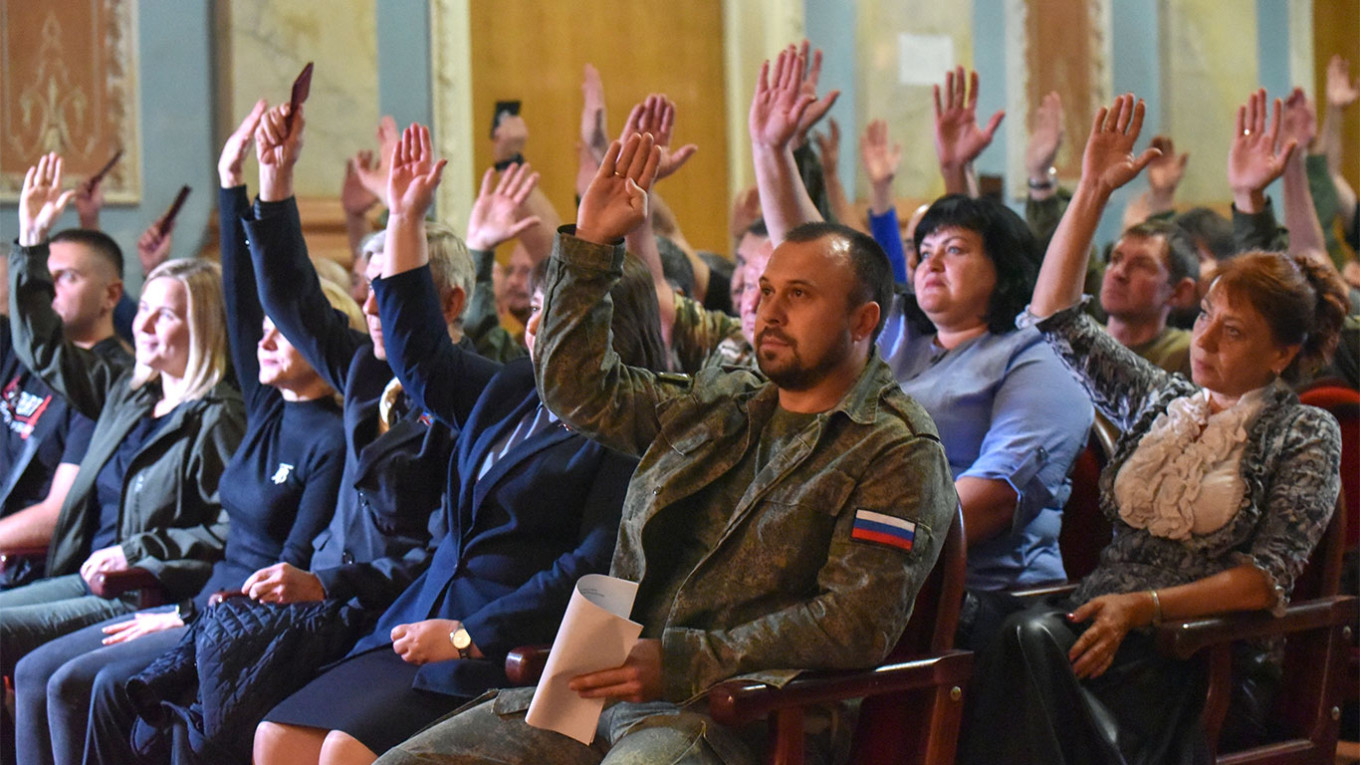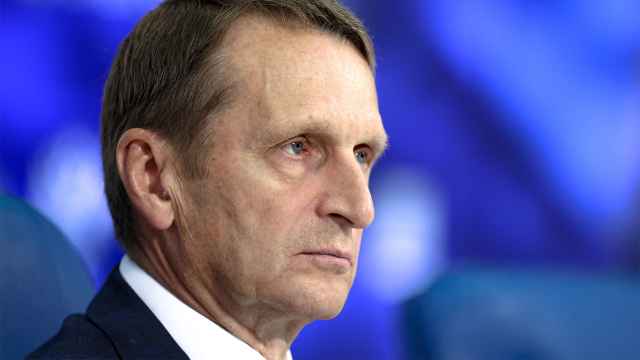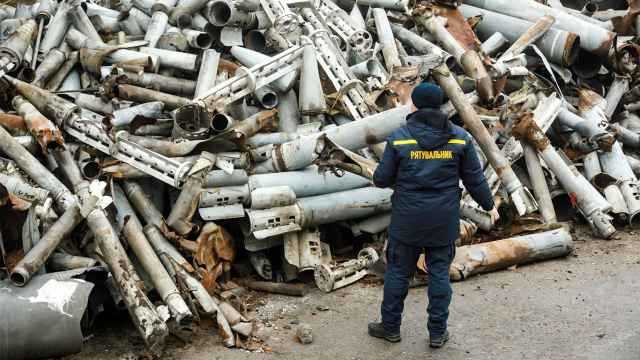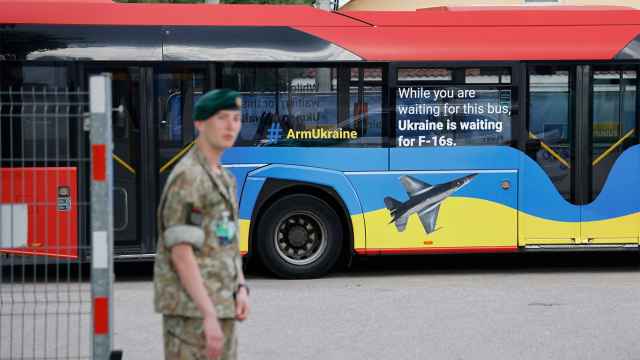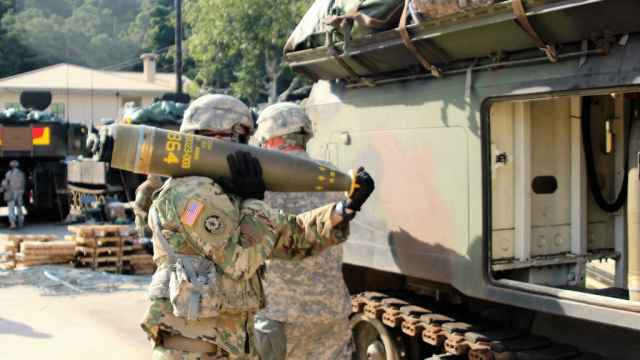Moscow’s decision to hold “referendums” in the occupied Ukrainian regions about joining Russia was both expected and unexpected. Expected, because Russian officials and their local lieutenants have been talking about such votes since the early days of this year’s all-out invasion. Unexpected, because such talk has subsided in recent weeks.
Denis Pushilin, the wily head of the Donetsk “People’s Republic” (DNR), reiterated in August that such a vote only makes sense after the full “liberation” (i.e. conquest) of the Donetsk region, where Russia’s motley troops have not made much progress against Ukraine’s increasingly Western-trained and equipped Armed Forces. And Kirill Stremousov, the talking head of the Russian occupation administration in the southern region of Kherson, said that plans for a referendum had been “paused” because of security considerations. The main job now “is to feed the population and to protect the population,” he said on state-run television on Sept. 5, one week after the start of Ukraine’s counteroffensive.
United Russia heavyweight Andrei Turchak suggested on Sept. 7 that referendums should be held Nov. 4, when Russia celebrates Unity Day. But this was met with rare criticism from Luhansk “People’s Republic” (LNR) leader Leonid Pasechnik, who retorted that, while his people were ready to vote “any day,” a referendum should be held only under secure conditions “which is currently impossible because of the attacks from Ukrainian forces.”
Turchak’s comments were overshadowed by Ukraine’s surprise counteroffensive in the Kharkiv region, which has brought Kyiv’s forces dangerously close to LNR positions in places like Lysychansk. And — lo and behold — suddenly those security considerations fly out of the window and the Kremlin’s local stalwarts — Pushilin, Pasechnik and even Stremousov and Yevgeny Balitsky (the head of the Russian administration in the southern parts of the Zaporizhzhia region) — are rushing to hold that “historical vote” to join Russia.
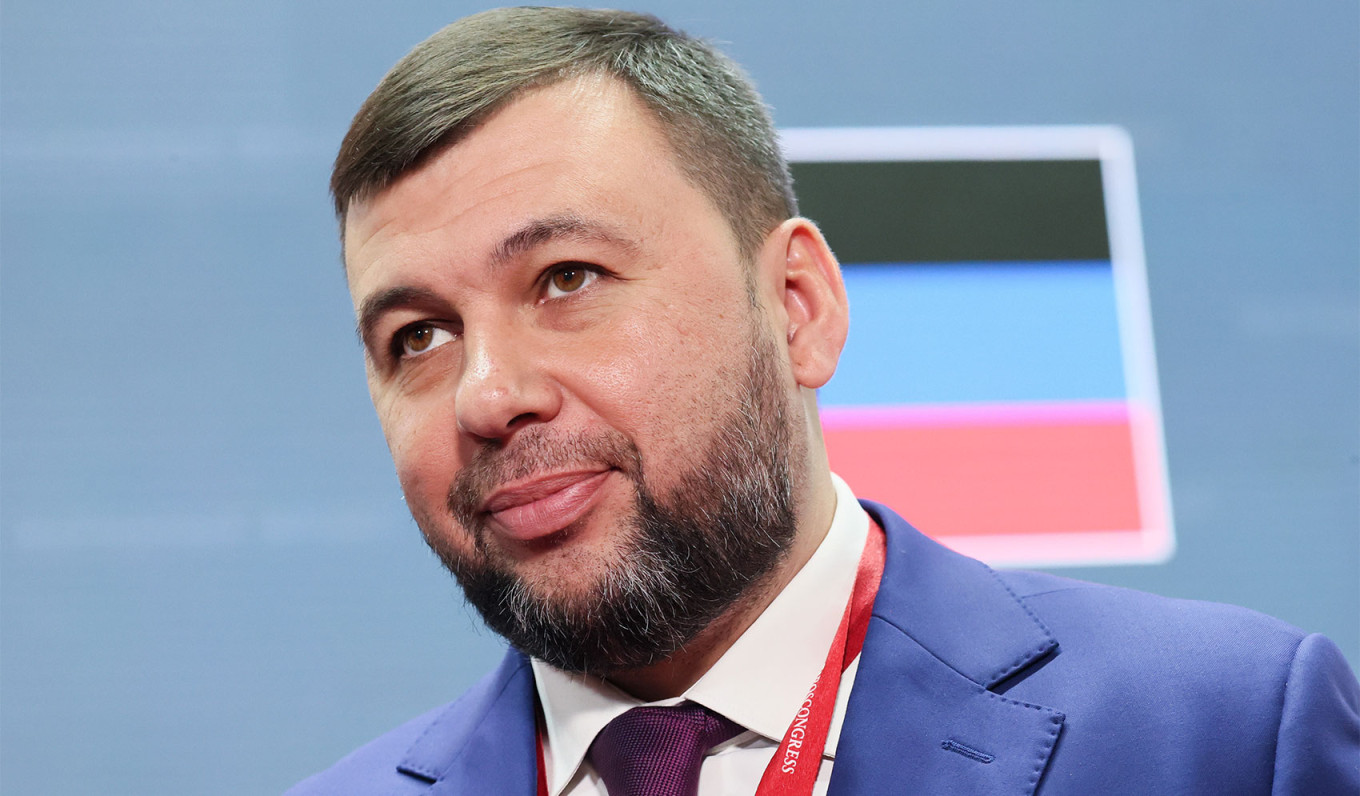
Of course, the Kremlin’s guiding principle is not the safety of the civilian population. Instead, it desperately needs to threaten Ukraine and her Western allies, underlining that attacks on annexed territories will be deemed equal to attacks on Russia — a logic that has been repeatedly rejected by U.S. President Joe Biden and many NATO allies.
Nobody doubts that the mock referendums will bring the desired results — anywhere between 75% and 99% in favor. To ensure this despite hasty scheduling, the vote has been extended to five days and will be carried out online and offline (polling stations might only open on the last day) as well as inside and outside the occupied territories (also in Russia). The last two days of the vote have been declared public holidays in Donetsk and Luhansk.
On the ground, however, the speed is already generating confusion. The Donetsk News Agency (DAN), the official mouthpiece of the Russian-controlled areas in the Ukrainian region of the same name, had not reported much on plans for a referendum prior to Sept. 19. On that evening, the Donetsk Public Chamber, a rubber-stamp body full of Kremlin loyalists, suddenly issued an appeal that an “immediate referendum” was necessary because “all citizens” were apparently in favor (no proof was offered). Of course, a DAN reporter happened to be in the room when the Chamber passed the appeal “unanimously.” However, the journalists had to put together their article so quickly they forgot to copy the word “immediate” from the headline into the text.
Moreover, the DNR “separatists” who are used to playing a bigger role vis-à-vis Moscow suffered a rare propaganda defeat when the Luhansk Public Chamber came out with a similar appeal two hours before them.
In what looked like a farcical attempt to maintain the upper hand, Pushilin then published a video in which he claims to talk to Pasechnik about the need to hold referendums in tandem. However, Pasechnik is not audible in the video and no mention of such a call was published on the LNR leader’s website nor by an official regional site.
Such antics indicate that Putin’s local allies, dubbed collaborators in Ukraine, cannot be sure that they themselves will survive an annexation process.
Who will guarantee that the stiff and boring Pasechnik will keep his insignificant fiefdom inside Russia? Why should the Kremlin protect Pushilin, a known fraudster who sold the late Sergei Mavrodi’s MMM pyramid schemes before 2014? Will they reward the eloquent Stremousov, a former anti-vaccine activist and marginal blogger?
All this is moot, however, if Ukraine keeps the military momentum and continues its attrition of Russia’s already crippled army. This, apparently, has now been understood in the Kremlin. It’s the main reason why Putin is going all in against the West.



